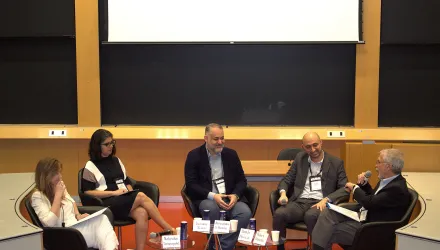Abstract
This discussion paper analyzes global climate policy as the problem of transforming governance of the atmosphere from an open-access into a global commons regime. This involves several challenges. First, setting an atmospheric stabilization goal requires balancing risks of climate change and risks of mitigation. Second, limiting the atmospheric disposal space for carbon devalues fossil resources and creates a novel climate rent, thus raising distributional issues. Third, policy instrument choice needs to consider the supply side dynamics of global fossil resource markets. Fourth, global climate policy entails strong free-riding incentives. The article reviews incentives for unilateral action and policy instruments as well as alternative conceptualizations of the emissions game that may somewhat alleviate this collective action problem. Finally, the literature on fiscal federalism and fiscal decentralization is considered, promising novel perspectives on designing an efficient decentralized governance regime of the atmospheric commons.
Ottmar Edenhofer, Mercator Research Institute on Global Commons and Climate Change (MCC), Potsdam Institute for Climate Impact Research, Technical University Berlin
Christian Flachsland, MCC
Michael Jakob, MCC, Potsdam Institute for Climate Impact Research
Kai Lessmann, Potsdam Institute for Climate Impact Research
Edenhofer, Ottmar, Christian Flachsland, Michael Jakob and Kai Lessmann. “The Atmosphere as a Global Commons—Challenges for International Cooperation and Governance.” Harvard Project on Climate Agreements, Belfer Center, August 2013



